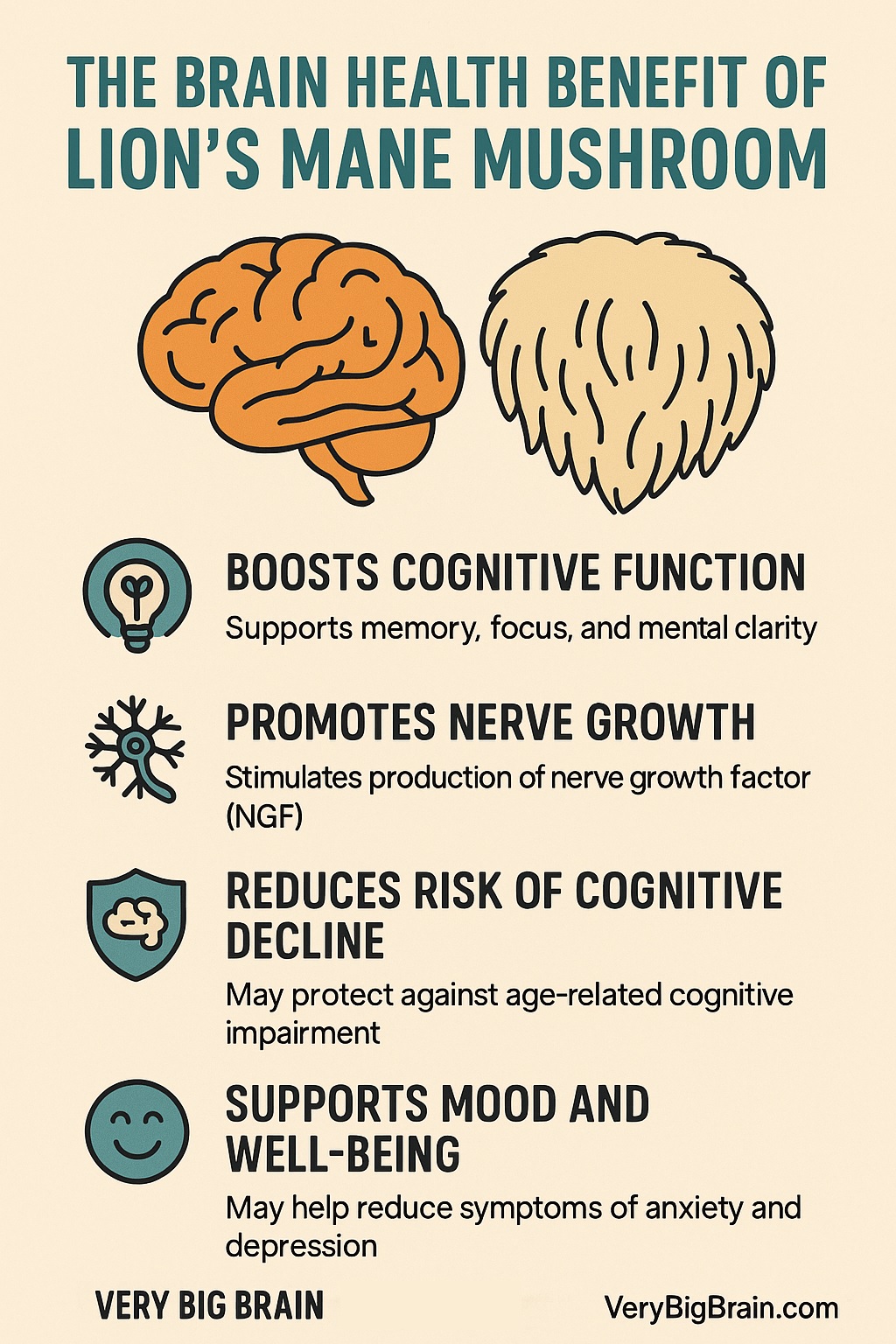
Lion’s Mane Mushroom (Hericium erinaceus) has captured the attention of neuroscientists, biohackers, and herbalists alike — and for good reason. This shaggy, white mushroom doesn’t just look unique; it contains compounds with remarkable neuroprotective and neuroregenerative potential. Long used in traditional Chinese and Japanese medicine, Lion’s Mane is now backed by modern research for its cognitive and neurological benefits.
One of the mushroom’s most powerful effects lies in its ability to stimulate the production of nerve growth factor (NGF) — a protein essential for the growth, repair, and survival of neurons. NGF plays a critical role in maintaining healthy brain function, especially as we age. By encouraging NGF synthesis, Lion’s Mane may support sharper memory, faster learning, and better mental clarity over time.
Lion’s Mane is also gaining traction as a natural option for long-term cognitive resilience. Early research suggests it may help slow or even reverse signs of age-related cognitive decline. At the same time, it may offer support for mental well-being, with studies hinting at its potential to ease symptoms of anxiety and depression by reducing inflammation and improving brain plasticity.
Whether taken on its own or as part of a well-formulated nootropic stack, Lion’s Mane Mushroom is quickly becoming a cornerstone ingredient for those looking to protect and optimize their brain health naturally.

